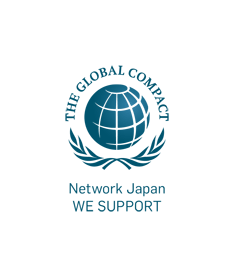Sustainability
Participation in United Nations Global Compact
April 06, 2015
NGK INSULATORS, LTD. (President: Taku Oshima; Headquarters: Nagoya, Japan) announced today that it began to participate in the UN Global Compact, a United Nations sponsored initiative, from April 2.
The UN Global Compact is a global framework for achieving sustainable growth through corporate and organizational conduct as good corporate citizens. Participating companies maintain 10 principles in the areas of human rights, labor, the environment and anti-corruption and are asked to practice these in their corporate activities. Since its launch in July 2000, over 12,000 organizations including more than 8,000 companies in approximately 160 countries have participated.
The NGK Group, under its corporate philosophy of "providing products that contribute to a better social environment," provides products that contribute to solving various social problems in the business domains of Ecology, Energy, and Electronics with the aim of achieving a sustainable society. As a global manufacturing company, we will realize our corporate philosophy and contribute to preserving the global environment and sustainable development of society through our corporate activities and corporate social responsibilities.
The Ten Principles
Human Rights
Principle 1: Businesses should support and respect the protection of internationally proclaimed human rights; and
Principle 2: make sure that they are not complicit in human rights abuses.
Labour
Principle 3: Businesses should uphold the freedom of association and the effective recognition of the right to collective bargaining;
Principle 4: the elimination of all forms of forced and compulsory labour;
Principle 5: the effective abolition of child labour; and
Principle 6: the elimination of discrimination in respect of employment and occupation.
Environment
Principle 7: Businesses should support a precautionary approach to environmental challenges;
Principle 8: undertake initiatives to promote greater environmental responsibility; and
Principle 9: encourage the development and diffusion of environmentally friendly technologies.
Anti-Corruption
Principle 10: Businesses should work against corruption in all its forms, including extortion and bribery.

